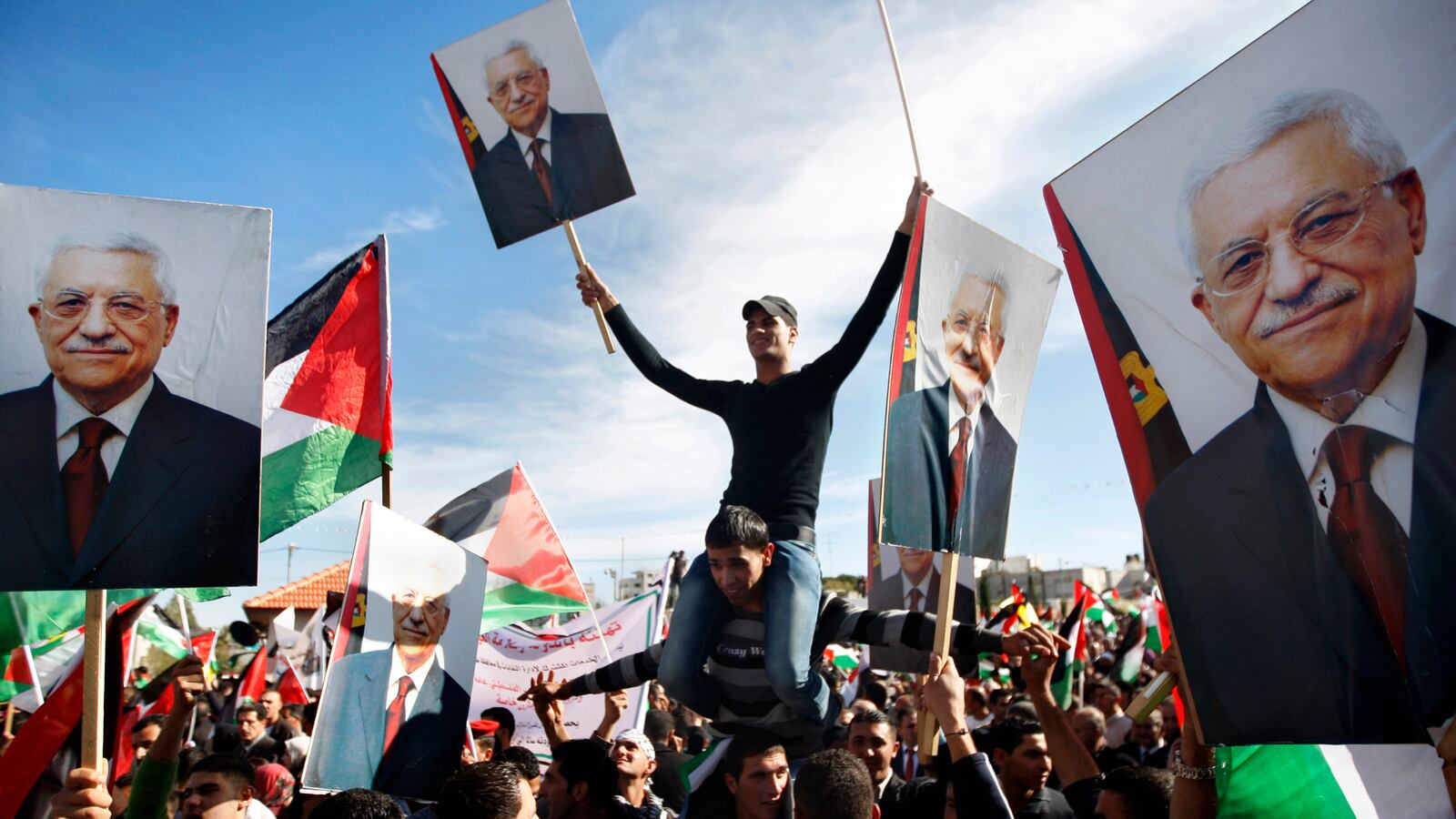From the Gaza war and the upgrading of Palestine at the U.N. to Israel’s announcement that it will likely build new settlements, the Israeli-Palestinian conflict is spiraling out of control. We as coauthors disagree on the Palestinian U.N. bid, as on other important aspects of Middle Eastern politics. But on this we profoundly agree: negotiations between Israel and the Palestinian Authority must resume, and fast. In the wake of the Gaza War, with Hamas growing stronger and the Likud lurching to the right, it is easier than ever to be pessimistic about the prospects for Israeli-Palestinian peace. But acquiescing to that pessimism means acquiescing to new spasms of terrible violence.

Amidst the obstacles lie opportunities. In Mahmoud Abbas, the Palestinian Authority has a leader—albeit a weak one—who disavows violence and accepts Israel’s right to exist. He’s even renounced his claim on Safed, the Israeli city from which he became a refugee. In Benjamin Netanyahu, Israel has a leader who has broken with his party’s historic opposition to Palestinian statehood, and emerged so powerful that, if he signed an agreement, he could likely prevail over any political resistance. Before one-staters on both sides grow stronger, there is a desperate need to at least see whether direct negotiations between Netanyahu and Abbas could bear fruit.
Since the Obama administration’s early days, a key obstacle to such negotiations has been Mahmoud Abbas’s demand for a settlement freeze before talks begin. The Palestinian anxiety about settlement growth is understandable. But Abbas’s refusal to talk directly has fed Jewish Israeli fears that he will never make the wrenching compromises necessary to bring a two-state agreement to pass. Fueling that cynicism is the fact that when Israeli did institute a 10-month partial settlement moratorium in 2009 and 2010, Abbas waited to begin direct talks until the moratorium was almost up.
The challenge is clear: to offer Abbas a settlement freeze that keeps Israel from creating facts on the ground that imperil the contiguity of a future Palestinian state while ensuring Netanyahu that, this time, limitations on settlement growth will mean serious, direct negotiations, right away. That’s doable. As one of us has previously suggested, the opening step would be for Abbas to begin direct talks, and for Netanyahu to reciprocate with a settlement freeze. Then the two leaders could agree to divide the West Bank into three chunks. The first, and largest, chunk would consist of territory outside the large settlement “blocs,” territory that all reasonable people acknowledge should be part of a Palestinian state. In that territory, the settlement freeze would continue. In the second chunk would be those settlements—like Ariel in the northern West Bank—that past Israeli leaders have insisted be incorporated into Israel (perhaps with land swaps) but Palestinian negotiators have deemed unacceptable. In those, the settlement freeze would remain so long as both sides kept negotiating in good faith, as determined by the United States. The third chunk would consist of those settlements near the green line like Gilo or Maale Adumim, which even Palestinian representatives conceded would remain part of Israel in the 2003 Geneva Accords signed by former Israeli and Palestinian negotiators. In this chunk, Israel could continue to build.
Accepting this structure would be difficult for both leaders. With an empowered Hamas calling Abbas Israel’s poodle (and America’s, too), it would be hard for him to concede that Israel can expand settlements in—and ultimately annex—any part of the West Bank before a deal on Palestinian statehood has been inked. For his part, Netanyahu would have to confront the powerful pro-settlement forces that last week led his government to retaliate against the Palestinian U.N. bid by announcing the likely building of 3,000 more housing units in East Jerusalem and the West Bank. He might also have to confront his own foreign minister and sometime rival, Avigdor Lieberman, who has called for toppling Abbas.
But even if Netanyahu won’t embrace the settlement freeze-for-negotiations deal before Israeli elections next January, the United States could still try to lay the groundwork for the day after his (likely) victory. Today, tragically, many Palestinians feel that Hamas’s violent path has brought them more tangible benefits than has Abbas’s conciliatory one. Hamas’s abduction of Gilad Shalit led to the freeing last year of more than 1,000 Palestinian prisoners; Hamas’s rocketfire has now produced a ceasefire that allows greater freedom of movement for Gazan farmers and fishermen. If Netanyahu does not want to help Hamas take power in the West Bank, he should try to reverse that perception. He must be willing to risk his own strong domestic support to help Abbas boost his. And Abbas, in return, must negotiate seriously with Netanyahu—putting aside polarizing measures like bringing charges to the International Criminal Court—thus showing Netanyahu’s Israeli constituents that, in the West Bank at least, Israel does indeed have a Palestinian partner for peace.
Ending a conflict as old and as brutal as the one between Israel and the Palestinians requires Israeli and Palestinian leaders willing to lock arms and help the other overcome the enormous pressures exerted by the rejectionists on his own side. At this fateful moment in Israeli and Palestinian history, either Netanyahu and Abbas will take daring steps toward peace, or no one will. They remain the only realistic game in town. And if America lets them fail, we can all expect many more days of blood and tears in the land between the Jordan River and the Mediterranean Sea.







